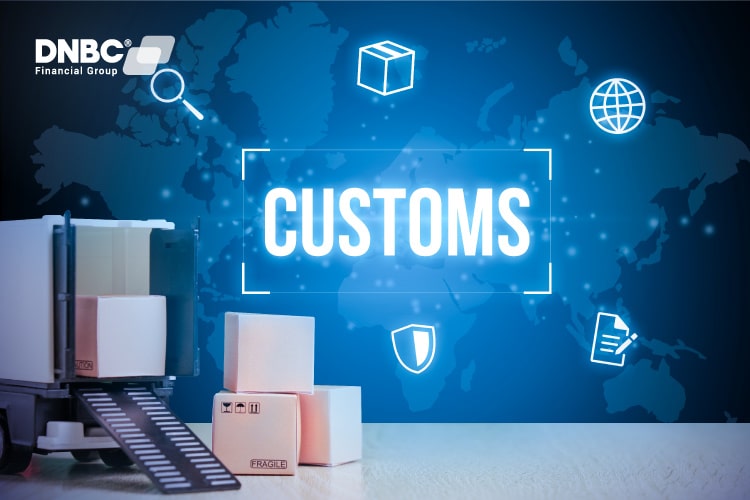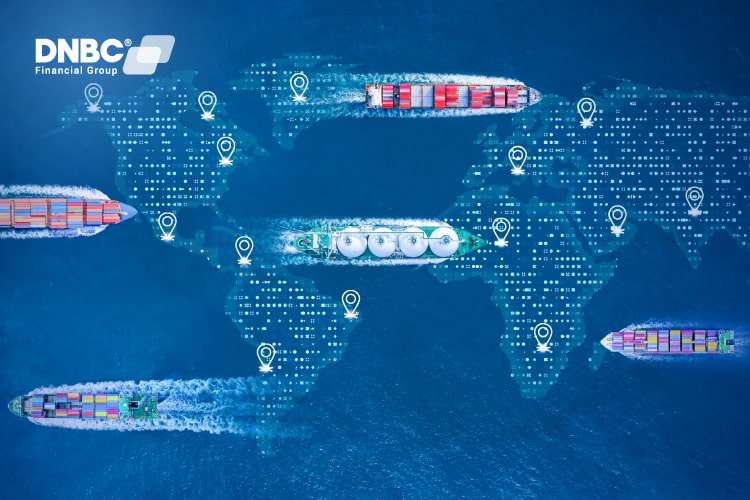The logistics industry (including logistic payment) is the backbone of global trade, ensuring that goods are transported from one corner of the world to another. However, the complexity of international transactions can often lead to a block, causing delays and inefficiencies that ripple through supply chains.
This article will explore the challenges faced by small and medium-sized logistics businesses, especially in conducting international money transfers.
It will also introduce logistic payment solutions designed to streamline cross-border transactions and improve efficiency for logistics.
Navigating the complexities of cross-border logistics
The global marketplace is more interconnected than ever, with goods flowing across borders to meet the demands of international consumers and businesses.
Moving goods between countries can be difficult and time-consuming. There are many challenges involved in shipping goods internationally. It’s not always easy to transport goods from one country to another.
Shipping process itself
One of the primary hurdles is the shipping process itself, which requires careful coordination of transportation modes—whether by air, sea, or land.

This is compounded by the need to secure reliable shipping partners and manage transit times, which can vary widely depending on the destination.
Warehousing
Businesses must establish or partner with warehouses in strategic locations to ensure that goods are stored safely and efficiently.
Managing inventory across multiple countries adds to the complexity, as businesses must balance stock levels, prevent overstocking or stockouts, and ensure timely fulfillment of orders.
Customs clearance
Companies must navigate a maze of customs regulations, which vary significantly from country to country. Each country has its own set of regulations, documentation requirements, and tariff structures, which can be difficult to navigate.
Businesses must ensure that all paperwork is accurate and complete to avoid delays, penalties, or even the seizure of goods.

Compliance with these regulations is critical to avoid costly delays or penalties, and it requires a thorough understanding of the necessary documentation and procedures for customs clearance.
Vulnerable to potential disruptions
Additionally, cross-border logistics are vulnerable to potential disruptions, such as delays caused by unforeseen circumstances like strikes, political instability, or natural disasters.
Goods can also be damaged during transit, leading to losses and impacting customer satisfaction.
How to deal with the complexities of cross-border logistics?
As businesses expand their reach across borders, they encounter a complex web of customs regulations, varying standards, and logistical hurdles that can significantly impact their operations.
Understanding the challenges
The intricacies of cross-border logistics stem from the need to navigate through different trade regimes, each with its own set of rules and regulations.
The World Trade Organization (WTO) has been facing challenges, and with the proliferation of bilateral and regional trade agreements, businesses must adapt to a variety of standards and compliance requirements.
Geopolitical tensions and the aftermath of global events, add layers of complexity, affecting commodity and energy supply chains and causing disruptions and volatility in global trade.
Strategies for effective cross-border logistics
To effectively manage cross-border logistics, businesses must consider the following strategies:
- Leverage technology
Utilizing multi carrier software platforms can simplify logistics by selecting the most appropriate shipping partners, planning routes, and preparing parcels for export.

These ‘logistics control towers’ can also handle the exporter of record and liability elements, transferring them to third parties.
- Choose the right fulfillment strategy
Businesses can opt for cross-border shipping, which involves shipping from an international location with more paperwork, or localized fulfillment, where inventory is stocked within regions included in the cross-border strategy and shipped domestically from those facilities.
- Build resilience
Supply chains need to incorporate resilience and risk mitigation to withstand the challenges posed by cross-border logistics. This includes understanding trade agreements, leveraging regional expertise, and enhancing visibility with technology.
- Foster strong partnerships
Establishing robust relationships with reliable carriers and logistics partners is crucial. Ensuring that they are well-integrated with your technology systems can lead to seamless logistics operations.

How to make international transactions for logistic payment needs?
The logistic complexities involved not only the physical transfer of funds but also ensuring compliance with various regulations, managing transaction costs, and navigating different logistic payment systems.
Compliance and regulatory support
Each nation has its own rules regarding money transfers, including AML and KYC requirements. The global trade dynamics are constantly evolving, influenced by geopolitics, international disputes, and regulatory changes.

DNBC complies with these regulations to facilitate processes. There is no failure to delays, fines, or even the blocking of transactions. DNBC’s global payment solutions are built to navigate these complexities, offering businesses the agility to adapt to the ever-changing landscape of international trade.
The company’s infrastructure is designed to support instant settlements, reducing transaction delays and enabling businesses to manage funds more effectively. This is particularly crucial in the logistics sector, where timing can be the difference between success and failure.
Offer competitive costs and transparency
Currency conversion fees, transfer fees, and other hidden charges can add up, reducing the amount of money that actually reaches its destination.
Furthermore, exchange rate fluctuations pose a risk in cross-border money transfers. Sudden changes in exchange rates can affect the final amount received, making it challenging to predict cash flow accurately.
DNBC offers competitive and reasonable costs to minimize startup expenses. DNBC offers clear and upfront pricing with no hidden fees, ensuring businesses know exactly what they are paying for each transaction.
Offer logistic payment solution
Cross-border money transfers can also be subject to delays, particularly when transferring funds between different payment systems or through intermediaries. These delays can disrupt business operations, especially when timely payments are critical for maintaining relationships with suppliers or partners.
DNBC has harnessed these advancements to offer smooth payments, ensuring that businesses can execute transactions swiftly and securely.
Consider the security risks
In addition to these challenges, businesses must also consider the security risks involved in transferring money internationally. Cybersecurity threats, such as hacking and fraud, are ever-present concerns, and ensuring that money transfers are secure requires robust security measures.
DNBC Financial Group’s approach to tackling the challenges of global logistics is multifaceted, focusing on speed, security, and transparency. With the advent of fintech, the financial landscape has seen a surge in disruptive technologies that have paved the way for more efficient and cost-effective logistic payment methods.
DNBC Financial Group is your trusted provider in international money transfer
- Get 100% free 1-on-1 support
- 100% free account opening
- Seamless onboarding process
Or please contact DNBC
![]() Email: [email protected]
Email: [email protected]
![]() Phone Number:
Phone Number:
- +65 6572 8885 (Office)
- +1 604 227 7007 (Hotline Canada)
- +65 8442 3474 (WhatsApp)



 DNBC Team
DNBC Team






